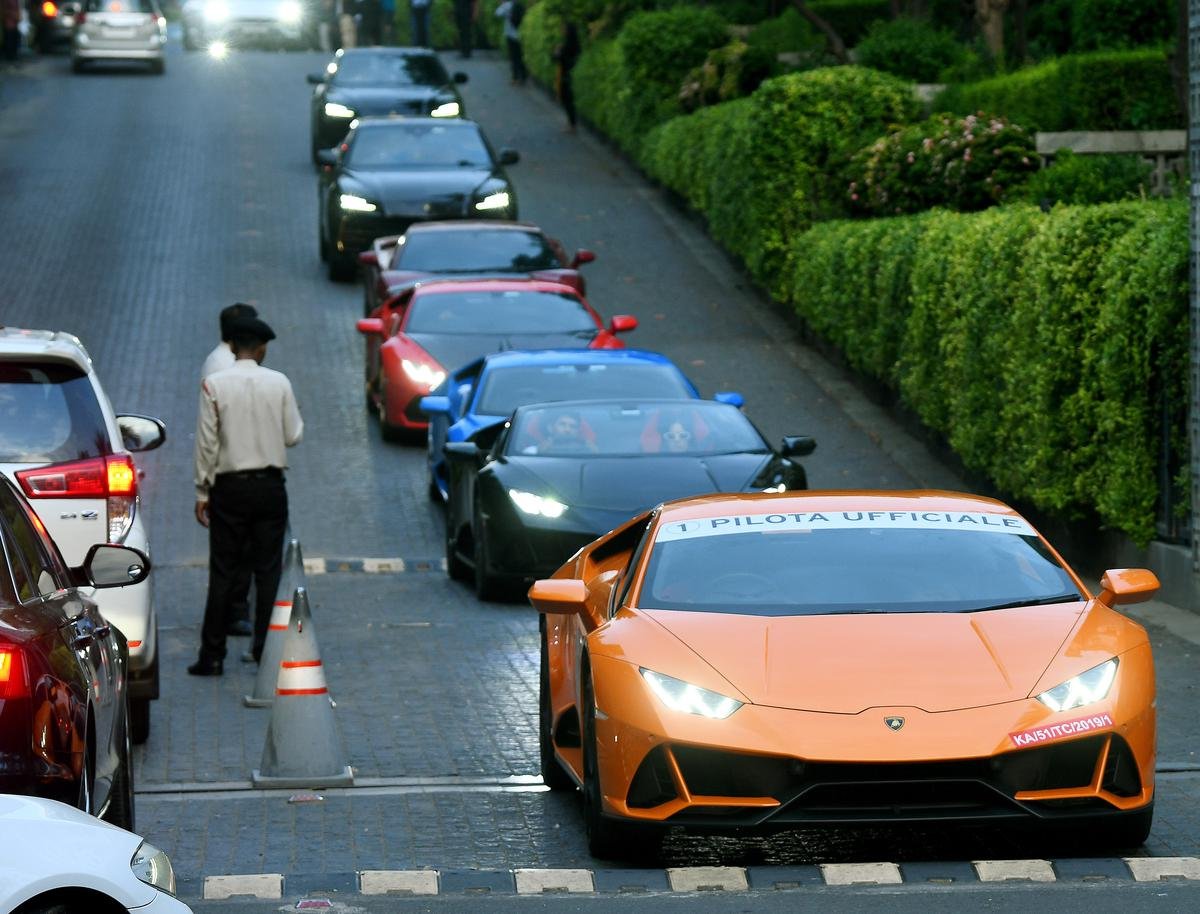The number of luxury cars in India recorded a sharp increase in the last five years, an analysis of vehicle registration data shows. Nearly 5 lakh luxury cars have been registered till date in India across various Regional Transport Offices, according to the Vahan portal. Of them, close to 30% were registered in the 2020-2024 period. This number is significantly high considering that the first two years in this period coincided with the pandemic and various sections of the economy were still in the recovery phase in the following two years.
For this analysis, certain manufacturers were termed luxury brands based on reports published in various credible news portals. The selection includes the following manufacturers: Lamborghini, BMW India, Porsche, Jaguar Land Rover, Mercedes-Benz, Volvo, Bentley Motors, Lexus Motors, Rolls Royce, Ferrari India, Audi AG, Aston Martin, Maserati, Acura Legend and Alfa Romeo. In some cases, the price of cars was also considered.
Table 1 | The table lists the luxury brand-wise number of cars registered in India till date (A), the number of cars registered between 2020 and 2024 (B), and the share (B as a % of A).
Table appears incomplete? Click to remove AMP mode
As stated earlier, the registrations of 30% of all luxury cars were done between 2020 and 2024. However, while some brands have gained popularity, others have not. For instance, over 40% of all the BMWs registered till date were purchased in 2020-2024; in contrast, the corresponding share for Audis was 7%. Similarly, 52% of Lamborghinis, 33% of Porsches, 30% of Jaguar Land Rovers, and 29% of Mercedes-Benz cars registered till today were purchased in 2020-2024. In contrast, the corresponding numbers were 10% for Rolls Royce cars, 13% for Bentleys, 8% for Ferraris, and 4% for Aston Martins. This shows that preferences have gone through a significant change in the past four years.
Also read |Data | How many electric vehicles and charging stations are there in India?
Chart 2 | The chart shows the number of luxury cars registered till date across various States along the horizontal axis. The farther to the right, the higher the number of luxury cars registered in the State.
There were also significant variations among States. Maharashtra leads the list by a wide margin with more than 94,000 such cars registered in the State till date. This is followed by Karnataka (56,396 cars), Delhi (49,971), Gujarat (42,101), and Tamil Nadu (40,423).
Click to subscribe to our Data newsletter
While absolute numbers are important, a comparison with non-luxury cars registered in the States provides a better picture. For this purpose, one luxury car registered in a State for every 1 lakh non-luxury cars is plotted on the vertical axis of Chart 2. The higher the State in the chart, the higher the luxury car concentration. Cars manufactured by Maruti Suzuki, Tata, Honda, Hyundai, and Toyota were considered non-luxury. For instance, in Maharashtra, for every 1 lakh non-luxury cars registered, there are 1,200 luxury cars. Notably, Maharashtra, Karnataka, Delhi, Tamil Nadu, Haryana, and Goa had a similar concentration of luxury cars. In the Union Territories of Chandigarh and Puducherry, the concentration was much higher. This was due to lower road tax and other fees, which significantly reduced the prices of such cars.
Table 3 | The table shows the same information as in Table 1 for States with a high number of luxury cars. Luxury brand-wise number of cars registered in India till date (A), the number of cars registered between 2020 and 2024 (B), and the share (B as a % of A).
Of the 154 Maseratis registered in India, 78 are in Tamil Nadu. Of the 723 Aston Martins registered in the country, 618 are in Karnataka. Maharashtra leads in registrations of Rolls Royce cars and Delhi leads in registrations of Alfa Romeo and Acura Legend.
Source: Vaahan Dashboard
rebecca.varghese@thehindu.co.in and vignesh.r@thehindu.co.in
Listen to our podcast |Catch me if you can: Why convicting cyber criminals & online fraudsters is a challenge | Data Point podcast
month
Please support quality journalism.
Please support quality journalism.

